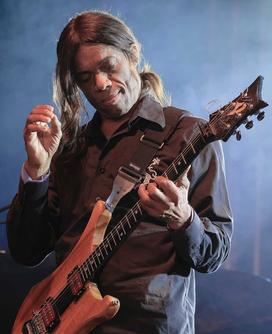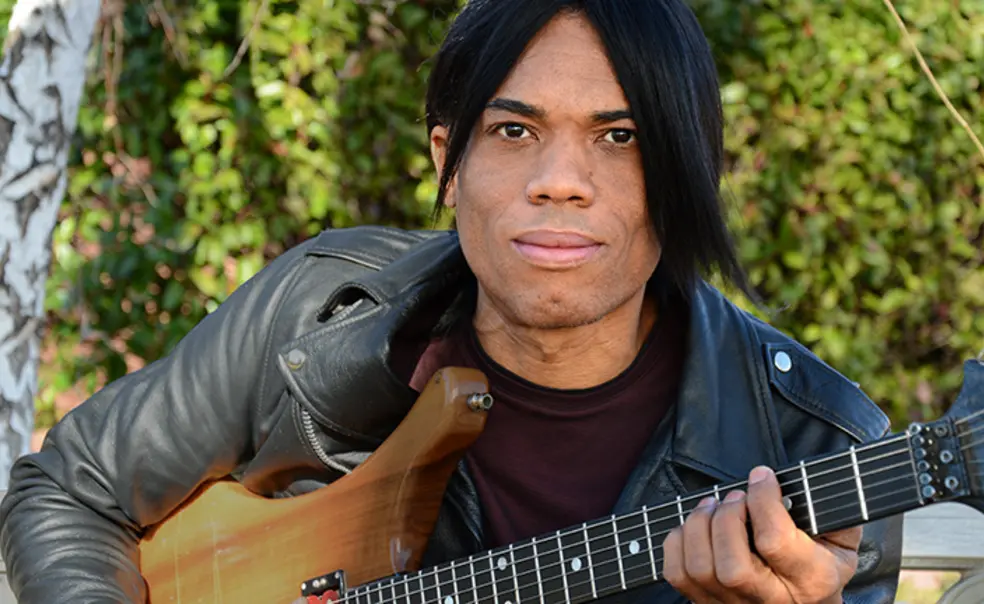Guitarist Stanley Jordan ’81 Is Sharing His Lauded Techniques
‘I want other people to experience this’
In his famous cover of Led Zeppelin’s “Stairway to Heaven,” Stanley Jordan ’81 doesn’t perform like a traditional jazz guitarist. At one point he plays two guitars simultaneously, and you won’t hear him pluck or strum.
Jordan uses a technique called touch tapping, which involves pressing the string down on the fretboard, along the neck of the guitar, without using his other hand to pick the string. The string resonates without the need for picking. As a result, he can play more notes — and more guitars — at the same time.
“One benefit is that you can have a variety of sounds, you can have separate sounds,” he explains. “In the ‘Stairway to Heaven’ video, there’s one point I put distortion on one guitar, but it was only on one guitar, but the other one still had the clean sound.”
In December, Guitar World named Jordan one of the 40 most influential guitarists since 1980, largely for his accomplishments with touch tapping. Originally a pianist, Jordan began using the technique because he missed the feel of the keys.
In the end, Jordan achieved far more than recreating the experience of playing piano. He can play multiple notes simultaneously since each hand can press down on separate strings, and he’s differentiated himself from traditional jazz guitarists.
It provides a brighter “sort of light and crystalline sort of sound,” he says. “It’s definitely different from the traditional jazz guitar sound. And the traditional jazz guitar sound is about making the notes as mellow and deep as possible.”
Jordan cites Eddie Van Halen as one of the most influential guitarists utilizing tapping technique, albeit as a rock guitarist with a different style. He hopes the technique becomes more common as he teaches more.
“I would like to have more of an impact on other players because what I’m doing has been so wonderful for me, and I want other people to experience this,” Jordan says.

“The touring itself — after a while it wears on you. So it’s been enormously wonderful for my health. I’m finally getting enough sleep,” says Jordan, who hopes to use this time to convince guitarists that touch tapping isn’t as intimidating or difficult as it seems.
While Integral primarily teaches guitar, including tapping, it also includes courses in music therapy and ASTEM, a variation on a traditional science, technology, engineering, and mathematics curriculum that uses the arts as a starting point for understanding science.
These courses grew out of Jordan’s longtime interest in the relationship between art and the broader world. In fact, exploring this relationship led him to study at Princeton instead of a music conservatory.
“I had thought about going to a music conservatory because I knew I wanted to focus on music,” he says. “But I felt that Princeton was a much better choice because I’m not only interested in music, and I wanted to understand more about the overall world that my music was going out into.”
Watch Stanley Jordan play “Stairway to Heaven”:












No responses yet